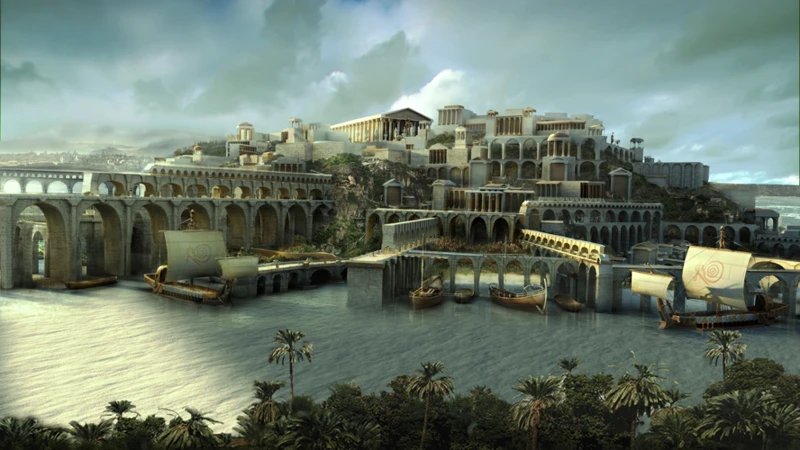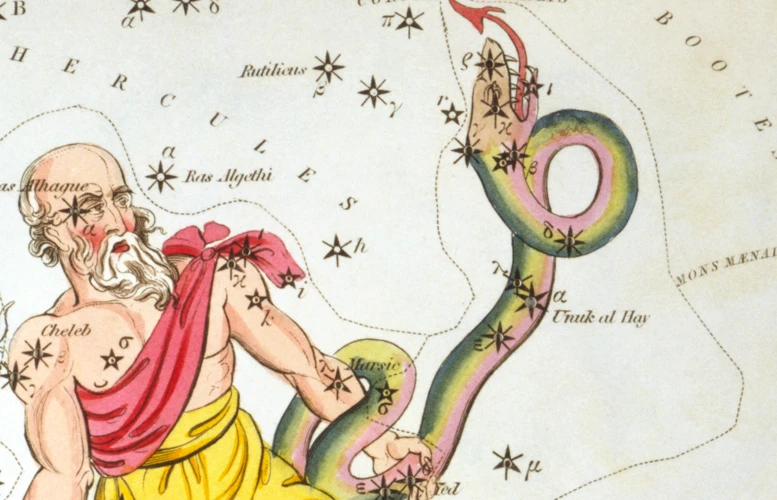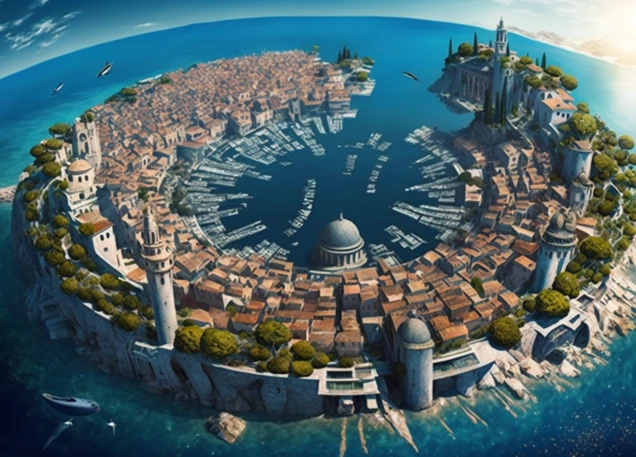The mythical city of Atlantis has captured the imaginations of people for centuries, with its tales of a technologically advanced civilization lost beneath the waves. But is Atlantis simply an intriguing legend or does it hold a glimmer of truth? In this article, we will delve into the mysteries surrounding this fabled city, examining ancient Greek sources and other historical accounts to explore the origins of the Atlantis myth. We will then embark on a journey through time, following the footsteps of explorers who have searched for the lost city. Along the way, we will encounter captivating tales of alien civilizations, cataclysmic events, and scientific theories that shed light on the possibility of Atlantis’s existence. So strap on your diving gear and prepare to delve into the depths of this enigmatic topic as we uncover the truth behind Atlantis: fact or fiction?
Exploring the Legends

Legends of Atlantis have captivated the minds of historians and enthusiasts alike, making it a subject of endless fascination. The Ancient Greek Sources are among the earliest accounts of Atlantis, with the philosopher Plato describing it as an advanced civilization that existed over 9,000 years ago. But Plato’s dialogues, particularly the “Timaeus” and “Critias,” are shrouded in mystery and interpretation, leaving room for ambiguity. Other Historical Accounts add to the enigma, with references to ancient maps and writings that hint at the existence of a great city. Some connections have been drawn between Atlantis and other ancient civilizations, such as the Mayans or the Romans, revealing surprising parallels in their architectural style or cultural practices. The search for Atlantis takes us on a journey of discovery, linking us to other captivating mysteries of the past, like /uncovering-treasures-pompeii-ancient-roman-life/, /revealing-origins-ancient-mayan-civilization/, or the enigma of the /enigma-easter-island-moai-statues/. As we delve further into the legends, these connections become threads in a complex tapestry that keeps the allure of Atlantis alive.
The Ancient Greek Sources
The ancient Greek sources stand as the foundation for our understanding of Atlantis. The philosopher Plato is the primary source, as he provided detailed accounts of Atlantis in his dialogues. Plato’s dialogue “Timaeus” offers a vivid description of Atlantis as a powerful and prosperous civilization, ruled by a divine lineage. According to Plato, Atlantis was located beyond the “Pillars of Hercules,” which some speculate to be present-day Gibraltar. It was described as an ideal society that had advanced technology, impressive architecture, and a sophisticated governmental system. However, the dialogue “Critias” provides a more critical view of the civilization, describing its downfall due to corruption and its subsequent destruction in a catastrophic event. Some scholars argue that Plato’s accounts of Atlantis were inspired by real events, while others believe it to be purely fictional. The enigmatic nature of Plato’s writings has sparked countless debates and interpretations, leaving much room for speculation about the true origins of Atlantis.
Other Historical Accounts
Other historical accounts pertaining to the existence of Atlantis offer intriguing hints and connections to this mysterious lost city. Ancient maps and writings have been examined for clues and references that may shed light on the possible location of Atlantis. For example, the works of the Egyptian priest Manetho mention a powerful civilization that was destroyed in a cataclysmic event. Some researchers speculate that this could be a reference to Atlantis. Additionally, the ancient philosopher and mathematician Pythagoras is said to have studied in Egypt, where he acquired knowledge about a great civilization that vanished. These accounts, along with others from various ancient cultures, suggest a collective memory or awareness of a great city that once thrived but eventually disappeared. Although the validity and accuracy of these accounts remain uncertain, they contribute to the enigma surrounding Atlantis and fuel our curiosity to uncover the truth buried beneath the sands of time.
The Search for Atlantis

The search for Atlantis has been a relentless quest spanning centuries, driven by the desire to unravel the truth behind this legendary city. Plato’s account of Atlantis serves as a compass guiding explorers on this intriguing journey. His narrative describes Atlantis as a powerful and prosperous civilization, ultimately destroyed by a cataclysmic event. Modern expeditions have attempted to pinpoint the location of this lost city, with different theories proposing sites ranging from the Mediterranean to the Caribbean. While some expeditions have yielded tantalizing discoveries, such as submerged ruins and anomalous underwater formations, definitive proof of Atlantis’s existence remains elusive. The allure of the search continues to inspire intrepid adventurers, archaeologists, and enthusiasts alike, all driven by the tantalizing prospects of uncovering a lost chapter of human history. The search for Atlantis serves as a reminder of our insatiable curiosity and the depths to which we are willing to explore in pursuit of knowledge and discovery.
Plato’s Account
Plato’s account of Atlantis is the cornerstone of the Atlantis mythos. In his dialogues, Plato describes Atlantis as a powerful and technologically advanced civilization that existed beyond the Pillars of Hercules, modern-day Strait of Gibraltar. According to Plato’s narrative, Atlantis was a wealthy and prosperous nation ruled by the descendants of the god Poseidon. The city was said to be a marvel of engineering, with grand palaces, canals, and a concentric ring structure. Plato claimed that Atlantis attempted to conquer Athens, but their efforts were thwarted by the Athenians, leading to the eventual destruction of Atlantis in a cataclysmic event.
However, the authenticity and precise location of Atlantis remain highly debated. Critics argue that Plato’s account is purely allegorical, designed to convey his philosophical ideas rather than describe an actual place. Many interpretations of Plato’s work suggest that Atlantis symbolizes an ideal society or serves as a cautionary tale about the dangers of hubris and the eventual downfall of supremely advanced civilizations.
Despite the uncertainty surrounding Plato’s account, it has fueled numerous expeditions over the centuries in search of the lost city. Modern explorers and researchers continue to analyze Plato’s texts, attempting to decipher any clues that may lead to the elusive Atlantis. In the quest for Atlantis, we navigate through a labyrinth of historical analysis, archaeological discoveries, and anthropological interpretations, all in pursuit of uncovering the truth behind this ancient enigma.
Modern Expeditions
Modern expeditions in search of the lost city of Atlantis have sparked both excitement and skepticism. While many theories and hypotheses have surfaced, several explorers have dedicated themselves to unraveling the mystery. One of the notable figures in the pursuit of Atlantis was Dr. Charles T. D’Arlington, who conducted an expedition in the early 20th century. D’Arlington believed that the Azores Islands off the coast of Portugal held the key to discovering Atlantis. His team meticulously surveyed the islands, examining geological formations and ancient artifacts, but ultimately, their findings were inconclusive.
Another renowned expedition took place in the 1960s, led by a Greek archaeologist named Professor Angelos Galanopoulos. He proposed that Santorini, a volcanic island in the Aegean Sea, might be the remnants of Atlantis. Galanopoulos analyzed the island’s geological features, drawing parallels to Plato’s descriptions of Atlantis sinking into the sea. However, his theories faced criticism due to the discrepancy in the timelines between the volcanic eruption that reshaped Santorini and the supposed timeframe of Atlantis’s existence.
In recent years, advanced technologies have aided explorers in their quest. Underwater archaeologists have used sonar, remote-operated vehicles, and advanced imaging techniques to survey the sea floor in areas where Atlantis is believed to have been situated. These expeditions have revealed intriguing underwater features, such as unusual formations and man-made structures, leading to renewed speculation about their connection to Atlantis.
Despite the efforts of modern explorers, the enigma of Atlantis remains unresolved. Some argue that Atlantis may forever reside in the realm of myth and imagination. Still, the allure of this lost city continues to inspire adventurers and researchers, driving them to embark on new expeditions and push the boundaries of knowledge in search of the truth.
Pseudoscience and Speculations

Pseudoscience and speculations have added fuel to the fire of the Atlantis myth, introducing intriguing yet controversial theories about its true nature. One popular theory suggests that Atlantis was not a terrestrial civilization at all, but rather an extraterrestrial civilization that visited Earth in ancient times. Proponents of this belief point to ancient texts and artwork that depict strange flying objects and humanoid figures, drawing parallels between the technological prowess of Atlantis and potential extraterrestrial contact. Another line of speculation revolves around lost cities and cataclysmic events. Some theorists propose that Atlantis was a victim of a catastrophic event, such as a devastating earthquake or a massive tsunami, leading to its sudden disappearance beneath the waves. These theories often draw upon geological and archaeological evidence of past civilization-ending catastrophes to support their claims. While these speculations offer intriguing possibilities, it is important to approach them with a critical eye, separating fact from fiction in the quest for understanding the true nature of Atlantis.
Atlantis as an Extraterrestrial Civilization
One of the most intriguing speculations surrounding the myth of Atlantis is the notion that it may have been an extraterrestrial civilization. This hypothesis proposes that Atlantis was not a terrestrial city at all, but rather a highly advanced society from another planet or dimension. Proponents of this theory suggest that Atlanteans possessed superior technology and knowledge that far surpassed anything on Earth during ancient times.
Supporters of the extraterrestrial Atlantis theory point to ancient astronaut theories which suggest that advanced beings from other worlds visited Earth in the past and shared their knowledge with early civilizations. They argue that the complexity and sophistication of Atlantis, as described by Plato, could only be explained by an otherworldly origin.
Additionally, some interpretations of Plato’s writings suggest that Atlantis may have been located beyond the physical realm, existing as a spiritual or metaphysical city. This idea aligns with the belief that Atlantis was a highly advanced society that transcended the limitations of the physical world.
While the idea of Atlantis as an extraterrestrial civilization sparks the imagination, it remains a speculative theory with limited concrete evidence. However, the concept serves as a reminder that the myth of Atlantis has permeated popular culture and inspired countless imaginative interpretations.
Lost Cities and Cataclysmic Events
The idea of lost cities and cataclysmic events has long been intertwined with the mystery of Atlantis. Many theories speculate that Atlantis, like other legendary lost cities, met its demise due to a catastrophic event. This notion is often linked to the concept of a great flood, similar to the story of Noah’s Ark. Folklore from various cultures worldwide speaks of ancient civilizations being destroyed by natural disasters, leaving behind only legends and ruins. The destruction of Pompeii by the eruption of Mount Vesuvius in 79 AD, for example, is a prime example of how an entire city can be preserved in time by a cataclysmic event. Similarly, the Mayan civilization experienced its decline due to a series of factors, including environmental changes and political instability. These parallels between known lost cities and the mythical Atlantis ignite our imagination and open doors to speculation. Could Atlantis have met a similar fate? Was it engulfed by a volcanic eruption or submerged by a massive earthquake? The enigmatic nature of lost cities and the allure of cataclysmic events continue to fuel our desire to uncover the truth about Atlantis and its final destiny.
The Scientific Perspective
Examining the legends of Atlantis from a Scientific Perspective brings us face to face with intriguing theories that seek to explain the mysterious city’s existence. The Continental Drift Theory plays a significant role in this exploration, suggesting that the Earth’s landmasses have shifted over time. Could Atlantis have once been a real place that succumbed to the forces of tectonic plates? Geological Inconsistencies also come into play when examining the viability of Atlantis. Some argue that the underwater topography of the Atlantic Ocean doesn’t support the existence of a submerged island large enough to match the grandeur described by ancient sources. These scientific arguments cast doubt on the physical existence of Atlantis, but the allure of the lost city continues to captivate the hearts and minds of those who seek to unravel its mysteries.
The Continental Drift Theory
The Continental Drift Theory is a significant aspect to consider when examining the potential existence of Atlantis. Proposed by Alfred Wegener in the early 20th century, this theory suggests that the Earth’s land masses were once connected in a supercontinent called Pangaea, which subsequently fragmented and drifted apart over millions of years. This theory holds relevance for Atlantis because it implies that the geography of the world has undergone significant changes, including the shifting of continents and the formation of new land masses. Such geological changes could have played a role in the potential submergence of Atlantis, as it might have been located on a landmass that has since sunk beneath the sea. The Continental Drift Theory also highlights the dynamic nature of the Earth’s crust and reinforces the possibility that the topography described by Plato may have been dramatically altered over time. Falling continents and rising oceans could have concealed any evidence that might have once existed. While the Continental Drift Theory does not provide direct proof of Atlantis, it serves as a framework for understanding the Earth’s ever-changing landscape and raises intriguing possibilities about the fate of the lost city.
Geological Inconsistencies
Geological inconsistencies are one of the major challenges when it comes to proving the existence of Atlantis. While some believe that the city was located in the Atlantic Ocean, there are several geological factors that point to the unlikelihood of this theory. Firstly, the tectonic activity in the Atlantic Ocean is well-documented, with the movement of plates creating new land masses, rather than submerging existing ones. This contradicts the notion of Atlantis being an advanced civilization that sank into the depths. Additionally, geological surveys and studies have not found any significant underwater structures or evidence of a sunken city in the designated areas. These findings raise doubts about the validity of the Atlantis legend in a geological sense. Another inconsistency is the lack of archaeological discoveries that support Atlantis as a real city. Despite numerous expeditions and advancements in underwater exploration technology, no concrete evidence has been found to prove the existence of an ancient, technologically advanced civilization like Atlantis. These geological inconsistencies cast doubt on the veracity of the Atlantis myth and challenge its classification as a historical fact.
Conclusion
The search for Atlantis may continue to intrigue us, but when it comes to a definitive conclusion, the truth remains elusive. The wealth of evidence, both ancient and modern, only adds to the complexity of the mystery. Throughout history, numerous theories have been proposed, ranging from Atlantis being an extraterrestrial civilization Atlantis as an Extraterrestrial Civilization, to its destruction being linked to cataclysmic events such as volcanic eruptions or tsunamis Lost Cities and Cataclysmic Events. On the other hand, scientific perspectives offer alternative explanations. The Continental Drift Theory suggests that the shifting of tectonic plates may have rearranged the earth’s landmasses, potentially causing the disappearance of Atlantis. Geological inconsistencies also challenge the existence of a vast continent, as no physical evidence has been found to support the ancient descriptions Geological Inconsistencies. While fascinating, these theories do not provide concrete proof of Atlantis’s existence. In , we find ourselves caught between the allure of an ancient myth and the skepticism of scientific inquiry. Perhaps Atlantis will forever remain an enigma, a testament to the power of human imagination and the enduring nature of legends. So, as we bid farewell to the mysteries of this lost city, we can continue to marvel at the stories, legends, and quests that keep Atlantis alive in our collective consciousness.
Frequently Asked Questions
What is the origin of the Atlantis myth?
The Atlantis myth originates from the ancient Greek philosopher Plato. He mentioned Atlantis in his dialogues “Timaeus” and “Critias,” written around 360 BCE.
Did Atlantis really exist?
The existence of Atlantis remains a subject of debate and speculation. While some believe it to be a real place that was lost to time, others consider it a fictional tale created by Plato.
Where was Atlantis supposed to be located?
According to Plato’s accounts, Atlantis was located “beyond the pillars of Hercules,” widely believed to be the Strait of Gibraltar. However, the exact location of Atlantis remains a mystery.
What was the technology of Atlantis like?
Plato described Atlantis as a technologically advanced civilization with impressive infrastructure, including canals, bridges, and massive palaces. He also mentioned their possession of powerful military forces.
Have any expeditions been conducted to find Atlantis?
Over the years, numerous expeditions have been undertaken in search of Atlantis. However, none have been able to definitively prove the existence or location of the lost city.
Could Atlantis have been an extraterrestrial civilization?
Some theories propose that Atlantis was not of this world, but rather an extraterrestrial civilization that visited Earth in ancient times. However, no concrete evidence supports this idea.
What geological evidence supports the existence of Atlantis?
There is no conclusive geological evidence supporting the existence of Atlantis. The lack of physical remains and the passage of time make it challenging to determine its veracity.
Did the sinking of Atlantis cause the destruction of other ancient civilizations?
According to some speculations, the sinking of Atlantis was interconnected with catastrophic events that affected other ancient civilizations. However, this remains a conjecture without firm evidence.
What is the Continental Drift Theory’s perspective on Atlantis?
The Continental Drift Theory suggests that the movement of tectonic plates over millions of years could have caused the submergence of land masses, potentially including Atlantis. However, this is purely hypothetical.
Why does the Atlantis myth continue to intrigue people today?
The Atlantis myth continues to captivate people’s imaginations because it represents an idea of a lost world, a utopia with advanced knowledge and technology. It serves as a reminder of humankind’s fascination with ancient mysteries and the allure of the unknown.








